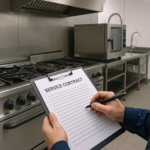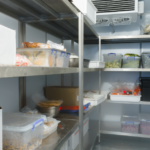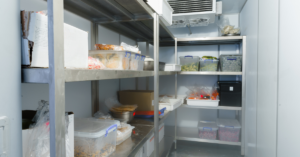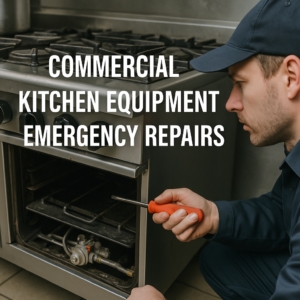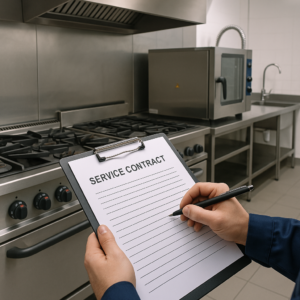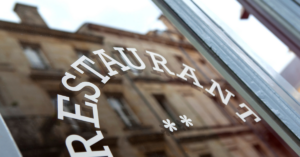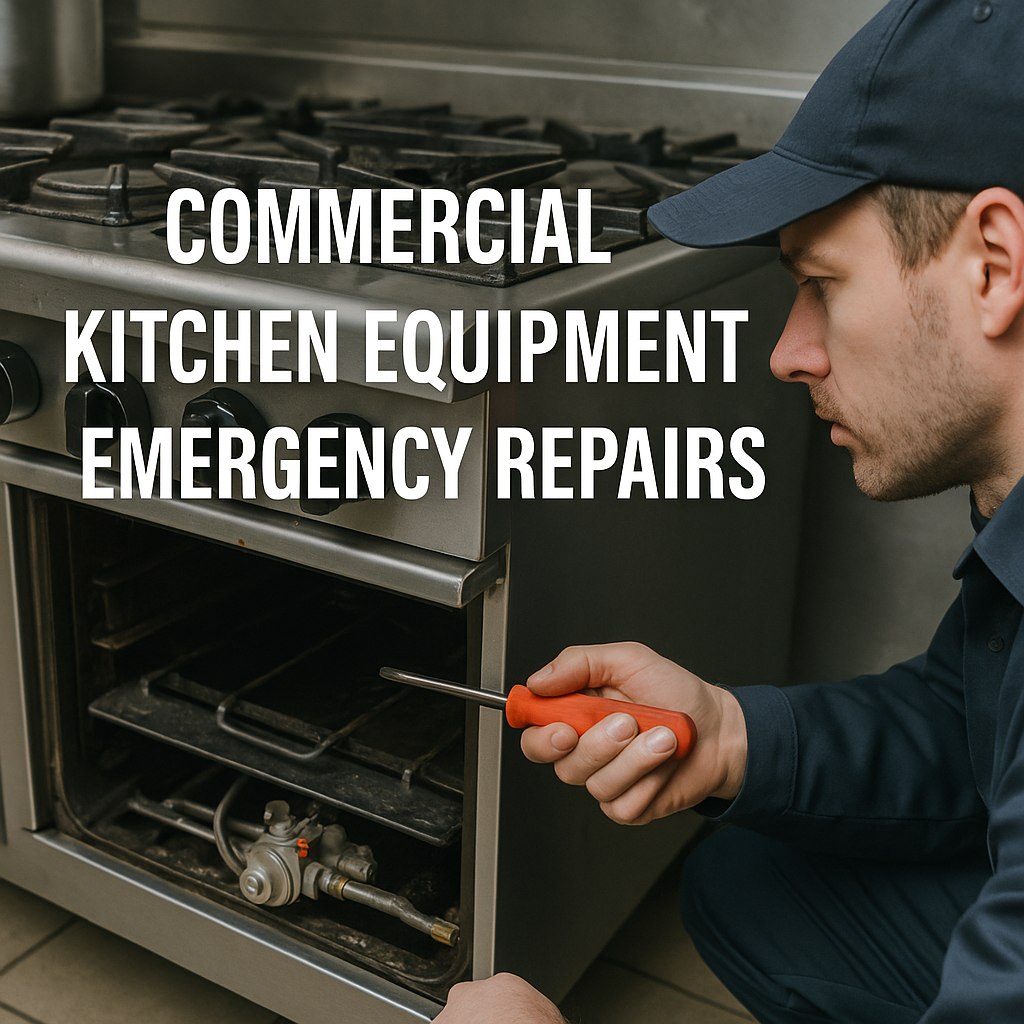
Running a commercial kitchen is chaos on a clock—every second counts, every plate matters. One machine sputters, and the whole rhythm collapses. Day & Nite / All Service has seen this play out in every possible flavor, from steakhouses in Queens to school cafeterias in Newark. The kicker? Most of these emergencies were ticking time bombs that could’ve been defused weeks—or even months—earlier.
The Hidden Cost of Emergency Service Calls
Here’s the truth: emergency repairs are the most expensive way to deal with equipment. Not just in dollars and cents—though those invoices can sting—but in downtime, spoiled food, lost customers, and stressed-out staff who can’t do their job. A failed fryer at 6 PM on a Saturday? That’s not a repair call; that’s a business threat.
It’s not rare for commercial kitchens to blow $1,500+ on a same-day refrigeration fix. Add another $800 for rush parts, $2,000 in food waste, and another $1,000 in lost revenue. That’s a four-grand “oops” because a condenser wasn’t cleaned.
Most Common Emergency Repairs (and Why They Hurt)
Techs at Day & Nite see the same five or six culprits over and over. They’re like bad guests—showing up uninvited and always when it’s least convenient.
-
Refrigeration units that stop cooling: Clogged coils, faulty thermostats, worn gaskets… doesn’t matter which—it leads to spoiled product and potentially a failed health inspection. Walk-ins, undercounters, prep tables. All at risk.
-
Flat-top grills and ranges that won’t light: Often due to dirty burners, broken igniters, or a pilot line leak. And if your kitchen’s turning out 100+ meals an hour, every second that grill’s cold is money melting.
-
Commercial fryers with temperature control failure: They either stop heating or worse, overheat. That means dangerous conditions, ruined oil, and inconsistent food. Boil-overs are kitchen nightmares—literally fiery.
-
Dishwashers leaking or not sanitizing properly: This one’s sneaky. You might not notice until customers complain about grime on plates. But when inspectors notice, it’s a red tag, maybe even a shutdown.
-
Ice machines flooding or dispensing moldy cubes. Regular cleaning and sanitization would’ve prevented both. But emergency calls? Usually after water damage’s already done or customers post photos.
-
Combi ovens that suddenly error-out: These are precise machines. But one missed calibration or skipped descaling and suddenly you’re staring at error codes you can’t decipher. With no steam, there’s no service.
Why It’s All Preventable (Seriously)
Here’s where things get frustrating: 70% of those service calls could’ve been prevented with a 30-minute maintenance check. Day & Nite crews often open up units and find easy fixes that would’ve cost pennies if caught early—cracked belts, dirty sensors, blown fuses. Nothing exotic.
Preventive maintenance keeps equipment tuned, safe, and efficient. It’s like flossing for your kitchen. Not flashy, but it saves you a fortune in root canals later.
A quarterly PM plan means:
-
Technicians clean and calibrate ovens so they don’t cook unevenly
-
Refrigeration units are tested for leaks, and coils get brushed out before efficiency tanks
-
Gaskets and seals are checked, so cold air stays where it should
-
Fryers are inspected for oil quality, thermostat precision, and basket wear
-
Dishmachines get descaled, sanitized, and spray arms unclogged
More Up-Time Means More Profit
The math isn’t hard. If your kitchen runs 12 hours a day, 6 days a week, that’s over 3,700 hours a year. Even losing 50 of those hours to equipment breakdowns cuts deep. That’s 50 hours of lost orders, wasted payroll, unhappy guests, and stressed managers putting out fires (literally, sometimes).
But when your gear hums along like it should? That’s stability. Predictability. Profit. You know your ovens hold temp, your walk-in is ice-cold, and your ice machine won’t turn your bar floor into a slip-and-slide. You get to focus on food and service—not scrambling for emergency repairs.
Day & Nite / All Service Makes It Easy
They’re not just a repair crew. They’re a strategy partner. Their PM plans are tailored—by equipment, usage level, and even season. Got a high-volume QSR or an upscale bistro? Different needs, different checklists.
And the best part: Their team tracks trends. If a certain fryer model has a known issue, they flag it before it fails. That means fewer breakdowns and more uptime across the board.
Don’t Wait for Something to Break
Emergency repairs don’t just break your budget. They break your rhythm, your confidence, your ability to serve food fast and fresh. Skip the scramble.
Talk to Day & Nite / All Service about setting up a preventive maintenance plan before the next dinner rush turns into disaster.

